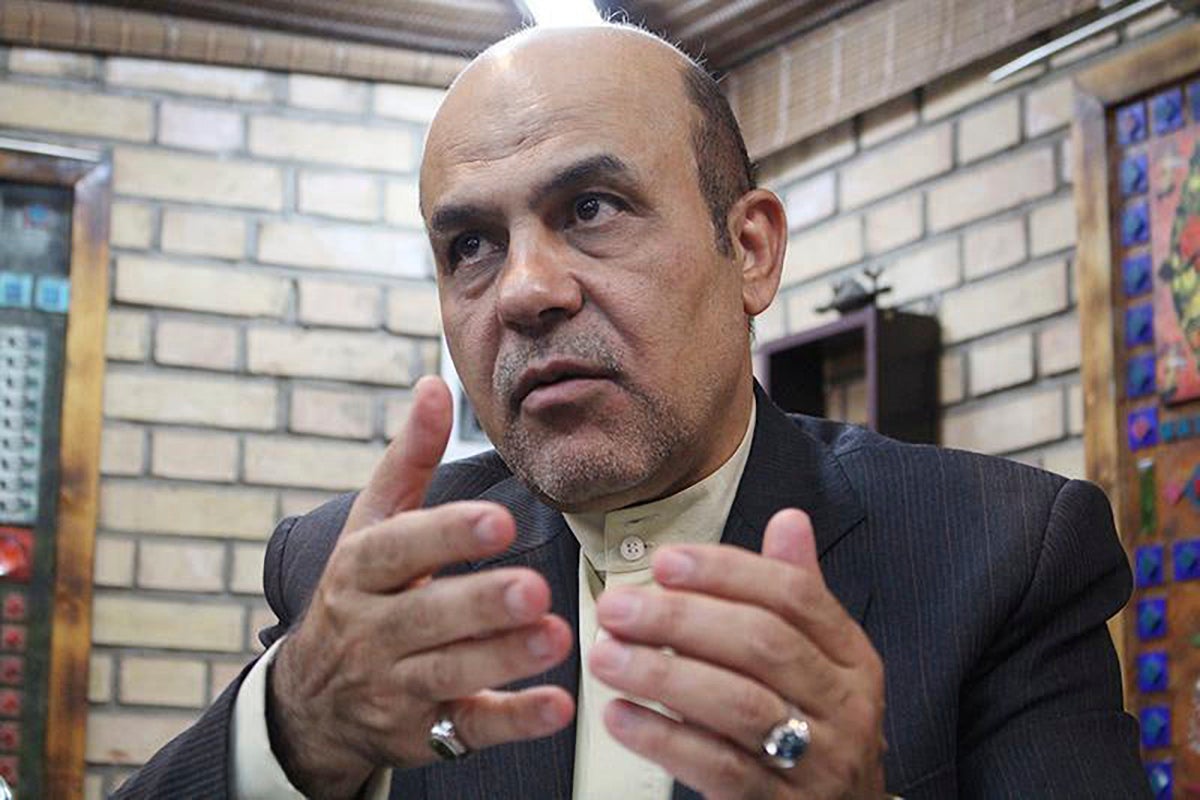The execution of Alireza Akbari may be a sign of the Iranian regime’s weakness
Editorial: The more that Iranians know there is support for their freedom around the world, the weaker the regime’s hold on their hearts will be

Any hope that the release of Nazanin Zaghari-Ratcliffe and Anoosheh Ashoori in March last year might mean a thaw in relations between Britain and the Iranian government, or progress in the Khamenei regime’s attitude to human rights, has been finally dashed by the execution of Alireza Akbari, a British-Iranian national.
Not that there should have been any doubt. The regime’s response to the protests by Iranian women last year, and in particular to the agitation unleashed by the death in custody of Mahsa Amini in September, has made clear that there will be no voluntary loosening of the authoritarian grip. While the release of Ms Zaghari-Ratcliffe and Mr Ashoori suggested that Iran’s rulers might be open to pragmatic engagement with liberal democracies, the killing of Mr Akbari shows the regime in its true colours.
The execution of Mr Akbari – a former deputy defence minister in the Iranian government accused of spying for the UK – seems to be designed to reinforce the regime’s propaganda that the protests that have shaken Iran are being stoked by foreign forces.
In that sense, it may be a sign of the regime’s weakness rather than its strength. The one thing that it does not want the Iranian people to believe is that they have the power to assert their rights, and in particular that Iranian women have the power to demand to be treated on equal terms with men.
Once the shock of outrage has been expressed, and after sympathy has been extended to Mr Akbari’s family, we are left with the familiar dilemma of how to respond to crimes carried out by governments that do not regard themselves as bound by universal norms – norms that they disdain as Western, imperialist or blasphemous.
As ever, there are no easy answers. Dialogue and engagement can work fitfully, as in the Zaghari-Ratcliffe and Ashoori cases, and for long periods of the international talks designed to restrain the regime’s nuclear ambitions. On the other hand, economic and political sanctions could also bring pressure to bear. James Cleverly, the foreign secretary, has applied individual sanctions to the Iranian prosecutor general – a mostly symbolic gesture, assuming that the prosecutor general has no intention of doing any shopping on Oxford Street in the near future.
There is also likely to be renewed debate about whether the British government should declare the Islamic Revolutionary Guard Corps (IRGC) a terrorist organisation. Alicia Kearns, the Conservative chair of the foreign affairs committee, said on Saturday: “Parliament seems united in its view that time has come to proscribe the IRGC.”
However, Jonathan Hall KC, the independent reviewer of terrorism legislation, on Wednesday published a note pointing out that this would mark a break with the UK government’s policy hitherto of excluding state forces from the definition of terrorist organisations under the Terrorism Act 2000. There is no doubt that the IRGC is an arm of the Iranian state, and that banning it under the act would complicate the government’s policy on human rights abuses by other state actors around the world.
However, this debate may be a form of displacement activity, engaged in by politicians and officials frustrated by the relatively few ways in which the British government on behalf of the British people can express their outrage at human rights abuses in Iran.
It may be better for the British government and free media organisations reflecting British public opinion simply to express their support for the rights of the Iranian people. We should declare that Iranian women have the right to walk the streets unveiled, to wear what they want, to cut their hair and to enjoy the same rights as men. The more that Iranians know that there is support for their freedom around the world, the weaker the regime’s hold on their hearts will be.



Join our commenting forum
Join thought-provoking conversations, follow other Independent readers and see their replies
2Comments